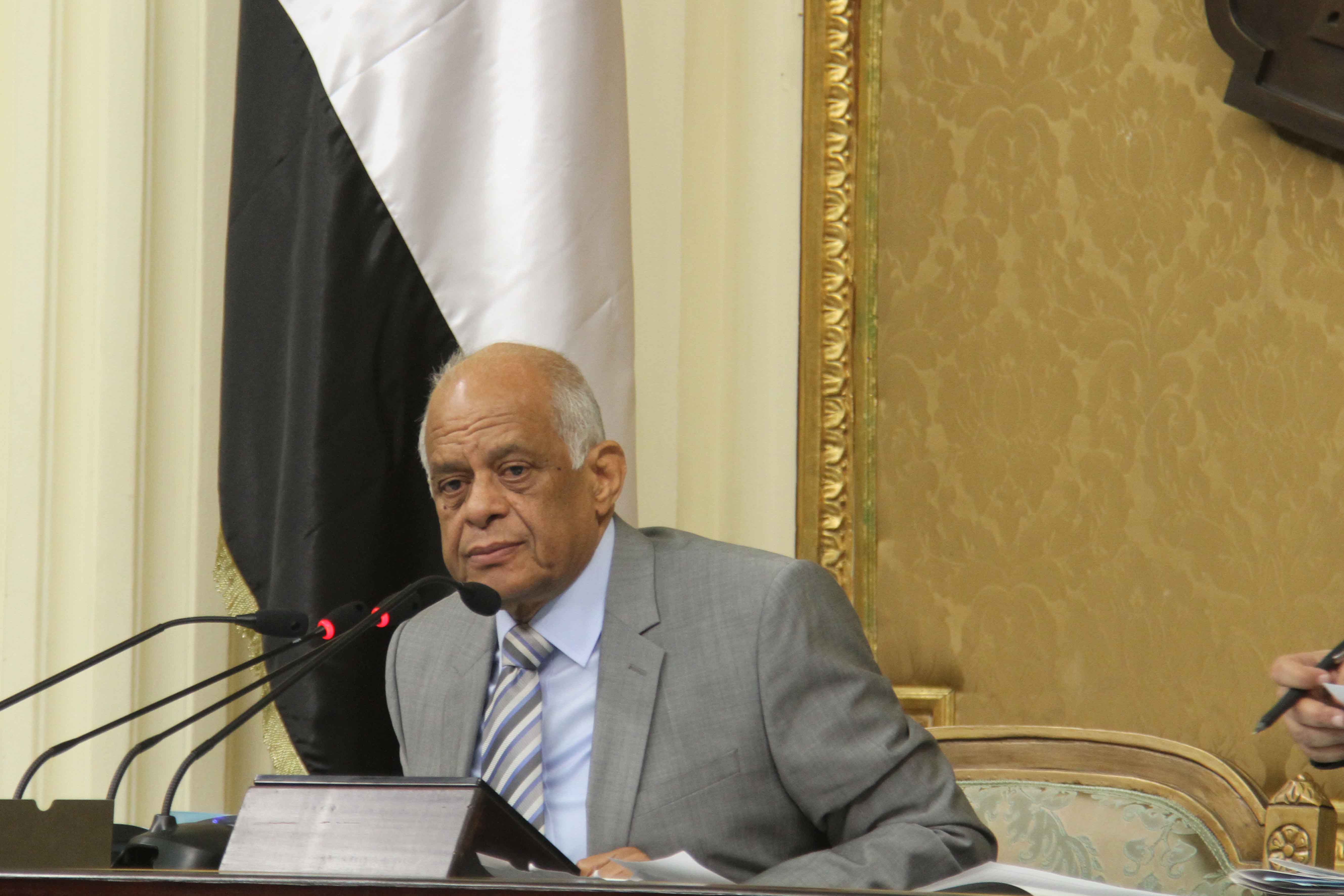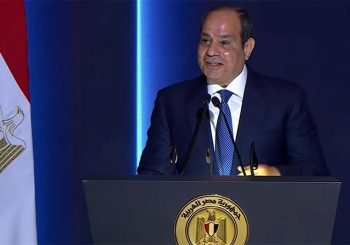Egypt’s speaker of parliament Ali Abdel Aal has warned lawmakers against speaking to the media about the government’s monetary policy or the dollar exchange rate, threatening to take disciplinary action against those who do.
“Constructive criticism is accepted but not when it is in the context of destruction,” he said, according to Parlmany.
He added that there is “a systematic campaign abroad to destroy the country’s constitutional institutions,” saying that some members of parliament have received training in how to criticize the country’s fiscal policies.
“Some may say that this is a breach of freedom of expression but freedom of expression should be responsible and harming the interests of the state is not seen as freedom of expression,” he continued.
“Some have been keen to appear on television shows to discuss the state’s monetary policy, an issue which leads to harmful consequences,” speaker Abdel Aal said. “Therefore all parliament members must refrain from speaking about the state’s monetary policy as it could expose it [the country] to harmful ramifications.”
He warned that parliamentarians who violate his instructions would be referred to the parliament’s ethics committee.
Abdel Aal’s comments have stirred controversy, with some calling into question the independence of Egypt’s parliament, which was opened in January for the first time in four years after being elected with a low voter turnout of 28.3 percent.
In 2012, the Muslim Brotherhood-dominated legislature was dissolved by the Supreme Constitutional Court. The ruling by Egypt’s top legislative authority came less than a year after it was elected in what was been described as the country’s first democratic parliamentary elections.
The current House of Representatives is considered by analysts as largely loyal to President Abdel Fattah Al-Sisi, with no real power to oppose the laws he wants to implement. As the parliament is dominated by the loyalist Support Egypt coalition, the country’s legislative procedures have been under scrutiny for not upholding the independence of the legislature.
Unnamed parliamentarians speaking to privately-owned Al-Masry Al-Youm also pointed to Central Bank of Egypt (CBE) governor Tarek Amer as the reason behind Abdel Aal’s threats against MPs.
Amer and President Sisi have been under fire for several months over the ongoing dollar crisis, which has driven up prices on basic goods, including medicines and food products despite efforts to solve the issue. In March, the Central Bank devalued the pound from 7.83 to 8.95 against the dollar, marking the first devaluation during Amer’s tenure as CBE governor. The move aimed to combat the black market sale of foreign currencies, which has seen the dollar being sold at much higher prices.
Speaking to AFP, MP Ahmed al-Tantawi criticized Abdel Aal’s comments, saying, “We are dealing with members of parliament, not high school students.”
Other parliamentarians played down the speaker’s remarks. “He said it in the form of advice, not as a threat and this is very acceptable,” said New Wafd party member Magdy Bayoumi.
“I read that one organization held more than one workshop for some members at which they discussed this topic. There seems to be some suspicion of incitement against the state,” Ashram Iskander, another Wafd party member, said.
Egypt’s parliament, with 448 independent seats, 120 party-based seats and 28 presidential appointees, is the country’s largest parliament to date. This is Egypt’s third parliament to be elected since the January 25 revolution in 2011 and marks the final stage of the “June 30 road map to democracy, » which was implemented after the ouster of Islamist President Mohamed Morsi in July 2013.







Comments (0)